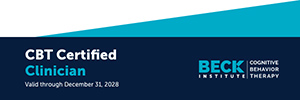In the whirlwind of life’s demands, stress is an inevitable visitor. It sneaks in through various aspects of our daily lives – work, relationships, financial burdens, and health concerns. While a certain level of stress can be a motivator, pushing us to excel in tasks like exams or public speaking, chronic stress can be a silent saboteur, impacting the quality of our lives. Understanding and managing stress is not just important; it’s essential for our well-being. Let’s explore how Cognitive Behavioral Therapy (CBT) can be a game-changer in your stress management journey.
Understanding Stress: Recognizing the Signs
Stress manifests in various forms, and recognizing its signs is the first step towards management. Here are some common indicators:
- Mood swings
- Anxiety
- Teeth grinding
- Trembling
- Muscle tension
- High blood pressure
- Fatigue or exhaustion
- Increased heart rate
- Sleep disturbances
- Poor concentration
- Problem-solving difficulties
- Excessive worry
- Feelings of sadness, frustration, or overwhelm
3 Main Types of Stress
Stress, while a universal experience, manifests in various forms. Broadly categorized into acute, chronic, and episodic stress, each type impacts us differently. By understanding these distinctions, we can tailor our stress management strategies more effectively.
1. Acute Stress: The Immediate Reaction
Acute stress is the most common form of stress. It’s your body’s immediate reaction to a new challenge, event, or demand – the classic ‘fight or flight’ response. It’s often triggered by specific, short-term problems, either in anticipation or as a reaction. Think of feeling nervous before a presentation or frazzled after narrowly avoiding a car accident.
Characteristics of Acute Stress:
- Short-term: It doesn’t last long and dissipates quickly.
- Immediate: Often arises in response to a pressing challenge or demand.
- Intensity: Can range from mild discomfort to severe panic.
- Symptoms: Includes rapid heartbeat, elevated blood pressure, and a heightened state of alertness.
2. Chronic Stress: The Prolonged Pressure
Chronic stress is the grinding, long-term presence of stressful situations that seem endless. It’s the stress of unrelenting demands and pressures that seem to go on for an extended period. This might stem from ongoing poverty, a dysfunctional family, or an unhappy marriage.
Characteristics of Chronic Stress:
- Long-term: Continues over a prolonged period, often without a clear end in sight.
- Cumulative: Builds up over time, often unnoticed until physical or emotional symptoms arise.
- Symptoms: Can lead to serious health problems like heart disease, diabetes, anxiety disorders, and depression.
- Mental Health Impact: Often results in feelings of helplessness or despair.
3. Episodic Acute Stress: The Frequent Flyer
Episodic acute stress is what people who frequently experience acute stress go through. These are individuals who seem to live a life of chaos and crisis. They’re always in a rush, but always late. If something can go wrong, it does. They take on too much, have too many irons in the fire, and can’t organize the slew of self-inflicted demands and pressures clamoring for their attention.
Characteristics of Episodic Acute Stress:
- Frequent Occurrence: Regular episodes of acute stress.
- Lifestyle-Related: Often due to a chaotic lifestyle or a personality type that leans towards worry and anxiety.
- Symptoms: Can lead to tension headaches, migraines, hypertension, chest pain, and heart disease.
- Behavioral Impact: People with episodic acute stress may be perceived as frantic, frenetic, or abrasive.
The CBT Approach to Stress Management
Step 1: Identifying Stressors and Responses
CBT begins with recognizing your unique stressors and understanding how you respond to them. This awareness is critical in crafting an effective treatment plan.
Step 2: Developing a Tailored Treatment Plan
Once your stressors are identified, a personalized intervention plan is developed. This plan is focused on equipping you with tools and strategies to manage stress effectively.
Step 3: Implementing CBT Techniques
CBT offers a variety of techniques to tackle stress, including:
- Cognitive Restructuring: This involves identifying and challenging stress-inducing thoughts and replacing them with more balanced and realistic ones.
- Relaxation Techniques: Techniques like deep breathing, progressive muscle relaxation, and mindfulness can significantly reduce physical symptoms of stress.
- Behavioral Activation: Encourages engagement in activities that bring pleasure and accomplishment, reducing stress and enhancing mood.
- Problem-Solving Skills: Helps in developing effective strategies to manage and resolve stress-causing situations.
Step 4: Practice and Application
Learning CBT techniques is just the beginning. The real change happens when you consistently apply these skills in everyday life.
Recognizing which type of stress you are experiencing is crucial because it guides the selection of appropriate stress management techniques. For instance, relaxation techniques might be more effective for acute stress, while long-term strategies like lifestyle changes and therapy might be required for chronic stress.
For episodic acute stress, a more comprehensive approach is often needed, involving changing one’s lifestyle, work habits, and potentially seeking professional help to understand and modify behaviors that contribute to stress.
Remember, understanding your stress type is the first step towards effective management. With this knowledge, you’re better equipped to tackle stress head-on, using strategies that resonate with your experiences. If you’re grappling with any of these stress types and need guidance, don’t hesitate to schedule a free consultation or call me (Dr. Vanessa Gomes, PhD) directly at (631) 496 2383. Let’s work together to find your path to a calmer, more balanced life.









